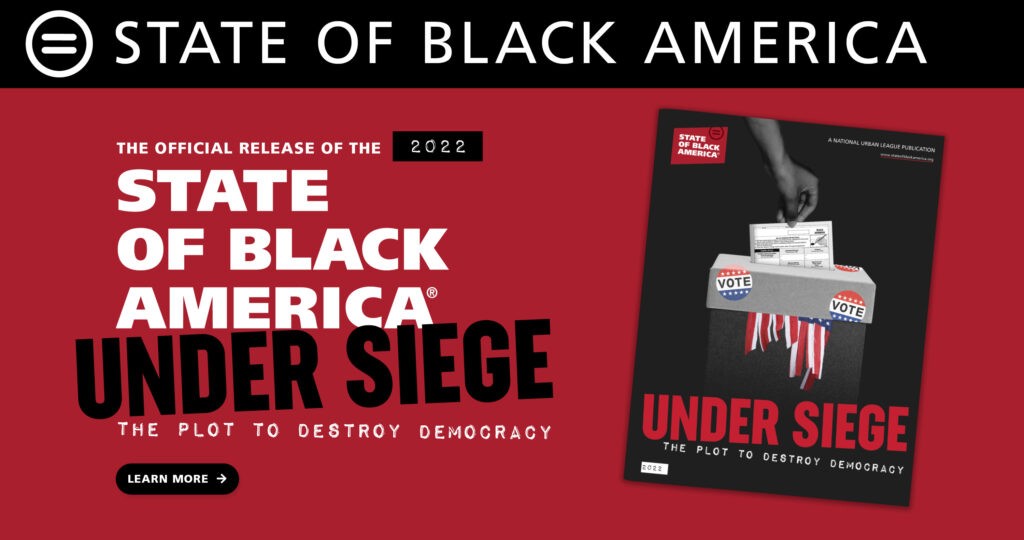The National Urban League has unveiled its highly anticipated 2024 State of Black America Report, a comprehensive benchmark and thought leadership document offering profound insights into racial equality in the United States.
Established in 1976 under the visionary leadership of the late Mr. Vernon E. Jordan Jr., the organization’s fifth president, the report remains a cornerstone for understanding the multifaceted challenges faced by Black Americans across crucial domains such as economics, employment, education, health, housing, criminal justice, and civic participation.
This year’s edition continues the tradition of featuring insightful commentary from influential figures in various sectors, providing a comprehensive view of the complexities of the current landscape. Economic empowerment is central to the National Urban League’s mission, and the Equality Index is a powerful tool to measure progress for Black Americans relative to whites.
Attributing the mission’s core to economic empowerment, National Urban League President Marc Morial emphasized the nuanced progress revealed by the Equality Index. “Civic engagement and health show improvement among African Americans; however, significant work remains in the areas of economics and social justice,” Morial stated.
 The Equality Index visually represents how Black Americans fare in economic status, health, education, social justice, and civic engagement compared to their white counterparts, utilizing whites as the benchmark due to historical advantages. The 2024 Equality Index for Black America stands at 75.7%, indicating that despite notable strides, African Americans still miss approximately 24% of the pie that symbolizes full equality.
The Equality Index visually represents how Black Americans fare in economic status, health, education, social justice, and civic engagement compared to their white counterparts, utilizing whites as the benchmark due to historical advantages. The 2024 Equality Index for Black America stands at 75.7%, indicating that despite notable strides, African Americans still miss approximately 24% of the pie that symbolizes full equality.
Breaking down the Equality Index, categories include economics, health, education, social justice, and civic engagement. Each category is carefully weighted based on its significance, and nationally representative statistics are employed to calculate sub-indices that capture the relative well-being of African Americans compared to whites. “Civic engagement and health are areas in which African Americans are doing much better,” Morial noted. “However, economics and social justice still need plenty of work.”
The report delves into the persistent racial income gap, which has remained virtually unchanged for over two decades. Black Americans earn, on average, 64% of the income of their white counterparts. “The Civil Rights Act of ‘64, the Voting Rights Act of ‘65, and the Great Society programs in the middle 1960s probably cut the American poverty rate in half in 15 years,” Morial remarked.
Civic participation among Black Americans presents a mixed picture, with increased voter registration (69% in 2020) but a decline in actual voter turnout (42.3% in 2022). Assessing President Joe Biden’s performance, the report acknowledges achievements such as a record-low Black unemployment rate and efforts to expand healthcare access and affordable housing for Black Americans. However, it points to political opposition hindering the enactment of key policies, including voting rights and policing reform.
“We are in a world of deep attack by an ideological extreme that wants to erase so much of the civil-rights movement,” said Maya Wiley, President of the Leadership Conference on Civil and Human Rights and co-author of the study. Kristen Clarke, Assistant Attorney General for Civil Rights in the Justice Department, assured, “We’ve been working across the country to reach underserved communities so that we understand the problems that communities face.”
Despite those challenges, the National Urban League said it remains steadfast in its commitment to closing the racial gap. Morial urged accelerated action, emphasizing unrestricted voting access, economic reforms to address poverty and wealth disparities, and crucial support for children, such as the expired child tax credit that significantly reduced child poverty rates.
He asserted that the 2024 State of Black America Report serves as a comprehensive call to action, urging the nation to confront systemic challenges hindering Black Americans’ journey toward genuine equality.
“What’s dramatic is that the Civil Rights Act of ‘64, the Voting Rights Act of ‘65, the Great Society programs in the middle 1960s, probably cut the American poverty rate in half in a 15-year period,” Morial said. “So can we? Yes, there are ways.”








